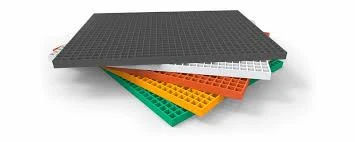
-
 Afrikaans
Afrikaans -
 Albanian
Albanian -
 Amharic
Amharic -
 Arabic
Arabic -
 Armenian
Armenian -
 Azerbaijani
Azerbaijani -
 Basque
Basque -
 Belarusian
Belarusian -
 Bengali
Bengali -
 Bosnian
Bosnian -
 Bulgarian
Bulgarian -
 Catalan
Catalan -
 Cebuano
Cebuano -
 China
China -
 China (Taiwan)
China (Taiwan) -
 Corsican
Corsican -
 Croatian
Croatian -
 Czech
Czech -
 Danish
Danish -
 Dutch
Dutch -
 English
English -
 Esperanto
Esperanto -
 Estonian
Estonian -
 Finnish
Finnish -
 French
French -
 Frisian
Frisian -
 Galician
Galician -
 Georgian
Georgian -
 German
German -
 Greek
Greek -
 Gujarati
Gujarati -
 Haitian Creole
Haitian Creole -
 hausa
hausa -
 hawaiian
hawaiian -
 Hebrew
Hebrew -
 Hindi
Hindi -
 Miao
Miao -
 Hungarian
Hungarian -
 Icelandic
Icelandic -
 igbo
igbo -
 Indonesian
Indonesian -
 irish
irish -
 Italian
Italian -
 Japanese
Japanese -
 Javanese
Javanese -
 Kannada
Kannada -
 kazakh
kazakh -
 Khmer
Khmer -
 Rwandese
Rwandese -
 Korean
Korean -
 Kurdish
Kurdish -
 Kyrgyz
Kyrgyz -
 Lao
Lao -
 Latin
Latin -
 Latvian
Latvian -
 Lithuanian
Lithuanian -
 Luxembourgish
Luxembourgish -
 Macedonian
Macedonian -
 Malgashi
Malgashi -
 Malay
Malay -
 Malayalam
Malayalam -
 Maltese
Maltese -
 Maori
Maori -
 Marathi
Marathi -
 Mongolian
Mongolian -
 Myanmar
Myanmar -
 Nepali
Nepali -
 Norwegian
Norwegian -
 Norwegian
Norwegian -
 Occitan
Occitan -
 Pashto
Pashto -
 Persian
Persian -
 Polish
Polish -
 Portuguese
Portuguese -
 Punjabi
Punjabi -
 Romanian
Romanian -
 Russian
Russian -
 Samoan
Samoan -
 Scottish Gaelic
Scottish Gaelic -
 Serbian
Serbian -
 Sesotho
Sesotho -
 Shona
Shona -
 Sindhi
Sindhi -
 Sinhala
Sinhala -
 Slovak
Slovak -
 Slovenian
Slovenian -
 Somali
Somali -
 Spanish
Spanish -
 Sundanese
Sundanese -
 Swahili
Swahili -
 Swedish
Swedish -
 Tagalog
Tagalog -
 Tajik
Tajik -
 Tamil
Tamil -
 Tatar
Tatar -
 Telugu
Telugu -
 Thai
Thai -
 Turkish
Turkish -
 Turkmen
Turkmen -
 Ukrainian
Ukrainian -
 Urdu
Urdu -
 Uighur
Uighur -
 Uzbek
Uzbek -
 Vietnamese
Vietnamese -
 Welsh
Welsh -
 Bantu
Bantu -
 Yiddish
Yiddish -
 Yoruba
Yoruba -
 Zulu
Zulu
frp fuel tank
Understanding FRP Fuel Tanks A Modern Solution for Fuel Storage
Fiberglass Reinforced Plastic (FRP) fuel tanks are becoming increasingly popular in various industries due to their unique properties and advantages over traditional fuel storage solutions. These tanks are constructed using a composite material consisting of a plastic matrix reinforced with glass fibers, offering a combination of durability, lightweight characteristics, and resistance to corrosion. This article explores the key benefits and applications of FRP fuel tanks, emphasizing why they are a preferred choice in modern fuel storage.
Understanding FRP Fuel Tanks A Modern Solution for Fuel Storage
Another key benefit of FRP fuel tanks is their lightweight nature. Weighing significantly less than steel or concrete tanks, FRP tanks are easier to transport and install, reducing labor costs and installation time. The lightweight property also allows for flexibility in design and placement, enabling businesses to utilize space more efficiently. Furthermore, the ease of handling minimizes the risk of injury during installation and maintenance, contributing to a safer working environment.
frp fuel tank

In terms of safety, FRP fuel tanks offer lower thermal conductivity, which helps in reducing the risk of explosions and ensuring better temperature control. Additionally, many FRP tanks are designed with advanced monitoring systems that can detect leaks or potential failures early, thus enhancing overall safety. The reduced risk of spillage not only protects the environment but also lowers cleanup costs and potential regulatory fines for businesses.
FRP fuel tanks are versatile and can be customized to meet specific requirements, making them suitable for various applications. They are widely used in industries such as aviation, transportation, agriculture, and construction, where reliable fuel storage is critical. Moreover, with the growing emphasis on sustainable practices, FRP tanks can be manufactured using recycled materials, aligning with environmental goals while providing high performance.
In conclusion, FRP fuel tanks represent a modern approach to fuel storage that combines durability, safety, and efficiency. With their resistance to corrosion, lightweight design, and customizable nature, they are increasingly being recognized as the solution of choice for industries looking to enhance their fuel storage capabilities. As technology advances and the demand for sustainable practices continues to grow, the adoption of FRP tanks is expected to rise, marking a significant shift in fuel storage solutions. Whether for industrial, commercial, or residential use, FRP fuel tanks are proving to be a forward-thinking choice in an evolving landscape.









